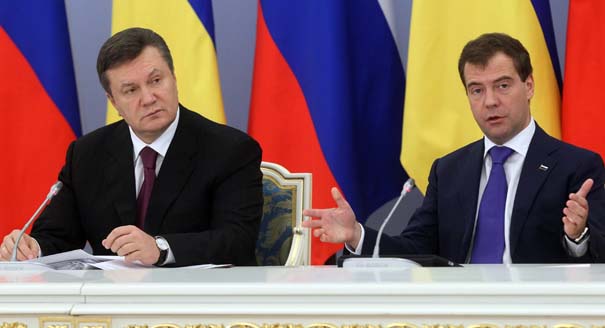When he took power in the spring of 2010, Ukrainian President Viktor Yanukovych was widely seen as a pro-Russian politician inclined to seek compromises with Moscow. Both sides expected his presidency to result in a normalization and stabilization of relations between Russia and Ukraine. Symbolic gestures such as the signing of the Kharkiv agreement, Ukraine’s renunciation of its aspirations for NATO membership, and a number of high-level visits between the two capitals seemed to confirm this initial impression. It is becoming increasingly clear, however, that the current Ukrainian president, like all of his predecessors, will not toe Moscow’s line and relations between the two countries are slowly but surely sliding into deadlock.
Not long into Yanukovych’s first year in office it became apparent that Ukraine would be increasingly subjected to Russian pressure on integration projects, would be carried out on Russia’s terms, with Ukraine gaining in the short term, but losing out heavily in the long run. Yanukovych, however, began to seriously engage with the question of European integration, privileging negotiations on Ukraine’s Association Agreement with the European Union (EU), while snubbing the possibility of joining Moscow’s Customs Union, a project that is dear to Russia and especially to Prime Minister Putin. These European aspirations have caused considerable disquiet in the Kremlin and Russian experts now argue that Ukraine’s leadership and elite send confusing messages to Moscow and that the country remains Russia’s most unpredictable partner in the post-Soviet space.
In sum, while there has been a reawakening of sorts between Moscow and Kyiv, relations between the two remain essentially unbalanced. Russia consistently expects more of its neighbor to the west and is consistently disappointed. Ukraine has two main concerns—cheaper gas and less attention from Russia—neither of which have been forthcoming.
Whether Kyiv and Moscow will be able to overcome this deadlock and build a stable and healthy relationship remains open to question. The current level of expectations on both sides, the lack of strategy, and the mutual distrust all suggest that relations between Ukraine and Russia will be fraught in the coming years. The people-to-people contacts that exist between Ukraine and Russia will serve as a guarantee against any military intervention by Moscow. However, disputes over gas, prompted by the introduction of higher gas prices for Ukraine, or trade wars, prompted by the finalization of EU-Ukraine talks on the Deep and Comprehensive Free Trade Agreement (DCFTA), are likely to follow.
The nature of Ukraine’s agenda for Russia remains an open question, but ultimately Kyiv must find a vision in order to rebuild its relations with Moscow and end the tensions.







